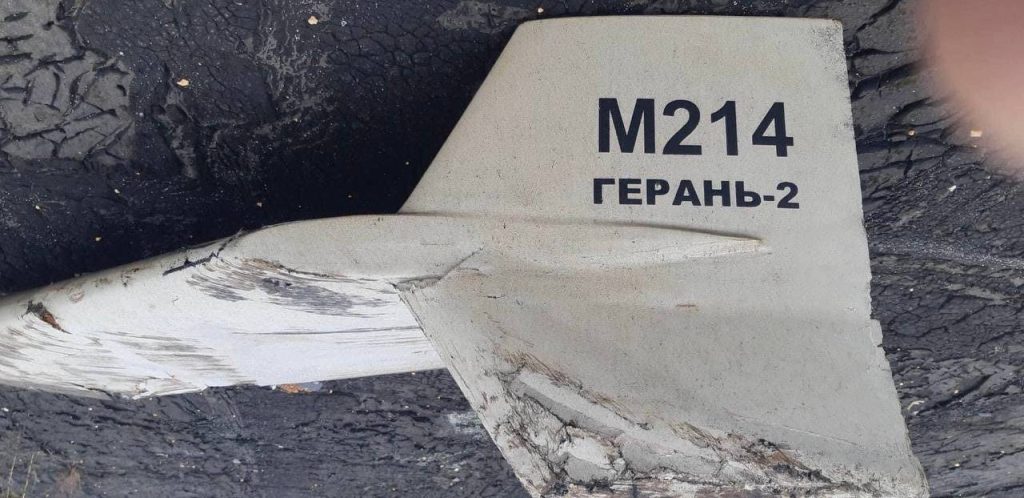FRESH AIR
Russo-Iranian drone factory will eventually haunt the Middle East
February 10, 2023 | Oved Lobel

As exclusively reported by the Wall Street Journal on Nov. 19, Russian and Iranian officials last year finalised an agreement to establish a production line for Iranian drones inside Russia, with the Ukrainian Air Force and other Western officials asserting that Iran was already transferring blueprints and components.
This week, a new exclusive Journal report revealed that a senior Iranian delegation, including Islamic Revolutionary Guard Corps (IRGC) officials, visited Russia on Jan. 5 to examine the site of a planned factory in Yelabuga. Once up and running, the plant will produce approximately 6000 Iranian-designed drones per year. Moreover, the report said, Russia and Iran are trying to qualitatively upgrade the design of the Shahed-136, or Geranium-2, loitering munitions with a new engine that will allow it to fly farther and faster. The factory will then produce this upgraded version.
Needless to say, this is bad news for Ukraine in the medium term; it is also very bad news for the Middle East, as no doubt the IRGC will take possession of some of these numerous, upgraded drones and dole them out to its various front groups in Iraq, Syria, Lebanon and Iran to use against Saudi, American and potentially Israeli targets.
These more advanced drones and their larger numbers will be accompanied by the reported forthcoming transfer of dozens of advanced Russian Su-35 aircraft to Iran as well as helicopters, air defence systems and other advanced military components. Iran is also reportedly approaching Russia for help with its nuclear program, and some Israeli officials fear Russia could transfer hypersonic missiles to Iran. Russia also built and launched a spy satellite for the IRGC.
Of course, the global Russo-Iranian alliance is nothing new, but what is new is Iran transferring production capabilities and designs to Russian territory, where Israel is highly unlikely to attempt the sabotage and assassination operations it has been carrying out with relative ease across Iran.
It is highly likely that the drone production factory Iran opened in 2022 in Tajikistan – under de facto Russian security control and which Iran and Russia have previously used as a joint base for operations in Afghanistan – will also be used by both countries. This was always the logical next step for the IRGC, which has long been using Russian aircraft and the main Russian base in Syria to attempt to protect its personnel and weapons transfers from Israeli strikes.
It’s unclear what the timeframe will be for the new drone factory in Russia, but if and when it is established, it will likely dramatically increase the striking power not only of Russia, but of the IRGC and its regional fronts, such as the Houthis and Hezbollah, as well. This is something that regional states, including Israel, have every interest in heading off, and all of these countries must warn Moscow that there will be concrete economic, political and military consequences should the Iranian drone factory be established.
When it comes to Australia, the progressively deepening military-technical cooperation between Russia and Iran is yet more evidence of what I warned of last July; namely, that Iran, far from being a junior partner, is a key member of the anti-Western axis alongside Russia and China, and that Australia cannot afford to ignore it or view it as a separate strategic issue. An adviser to Iran’s intelligence minister recently claimed that China would be receiving 15,000 Iranian drones.
While Australia’s new sanctions on the drone elements of the Russo-Iranian partnership are welcome, what is required is a sea change in Australian policy towards Iran. A good start would be to adopt the recommendations in the Senate Foreign Affairs, Defence and Trade References Committee’s recent report on Iran.
Managing the relationship with the Chinese Communist Party is an unfortunate necessity due to economic factors. No such justification exists for managing relations with Iran rather than reducing them to the greatest extent possible. Instead, Australia should adopt a more coercive approach to the Iranian regime, which has been an avowed enemy of the Western world, including Australia, since its establishment in 1979 and must be viewed and treated as such.
RELATED ARTICLES

‘Optimism’ for Hamas to ‘exile’ their power and create a permanent ceasefire with Israel: Joel Burnie on Sky News

Australian government’s response to Iran-Israel conflict ‘disappointing’: Paul Rubenstein on Sky News

UNRWA feeds the ‘Palestinian delusion’ of no Jewish state: Dr Einat Wilf on Sky News




















